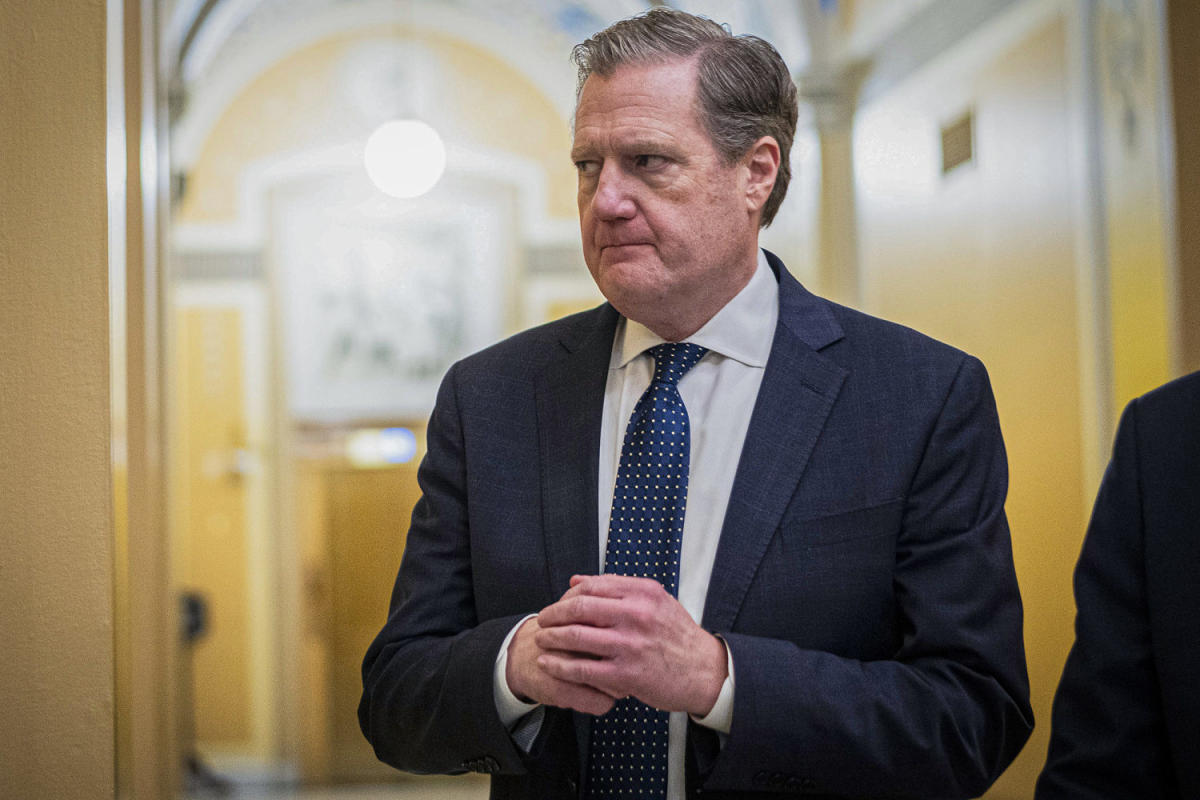World
GOP lawmaker demands Biden admin declassify intel on Russia’s nuclear anti-satellite program

The Republican chair of the House Intelligence Committee is demanding the Biden administration declassify all relevant intelligence about the status of Russia’s nuclear anti-satellite program, saying it would allow for a full public debate on the threat posed by Moscow’s project.
Rep. Mike Turner of Ohio said in a speech that the Biden administration has failed to decisively confront the Russians over an anti-satellite weapon that could jeopardize the array of satellites orbiting the Earth that modern society depends on for communication and navigation.
“The Biden administration must immediately declassify all known information concerning the status of Russia’s nuclear anti-satellite weapons program,” Turner told an audience at the Center for Strategic and International Studies think tank in Washington.
“[Russian President] Vladimir Putin thrives in secrecy. Putin’s plans and weapons programs must be fully disclosed by the administration and understood by the world,” Turner said.
The GOP congressman pushed the administration in February to publicly reveal Russia’s effort to build a nuclear weapon capable of striking satellites after issuing a cryptic statement about the need for the White House to declassify certain information. The administration eventually acknowledged that Russia was developing such a weapon, though it said it was not an imminent threat and offered no other details publicly.

Turner said the administration has been too slow to act and has shied away from sharing information publicly about the Russian program, which he argued prevented a full discussion about how the U.S. and its allies should respond to what he called a potentially “catastrophic” threat to all civilian activities in space.
“Intelligence is gathered so you can impact the outcome. It is not so we can be casual observers,” Turner said in remarks after his speech.
The lawmaker said sharing more information publicly about the state of Russia’s anti-satellite work would not put at risk intelligence gathering “means, methods and techniques,” but would help Washington and U.S. allies determine a course of action to prevent Moscow from deploying such a weapon.
Turner also said the U.S. and its NATO allies should jointly vow to enforce the U.N. Outer Space Treaty, which bans weapons in space.
The Biden administration rejected Turner’s criticism and made no promise to declassify more information about the Russian weapons program.
“He’s just wrong. He’s just flat-out wrong,” White House national security spokesperson John Kirby told reporters.
“Look, we have absolutely taken this very seriously. We’ve been working this particular problem set from every possible angle, including through intense diplomacy with countries around the world, and obviously through direct conversations with Russia,” Kirby said.
Kirby and other administration officials noted that the U.S. proposed a resolution at the U.N. Security Council in April that sought to prevent an arms race in space. Russia vetoed the resolution.
“We’ve been working hard to get other countries to join us, making clear what the dangers are of an anti-satellite weapon that’s designed to carry a nuclear weapon,” Kirby said.
He added it would have been better to have kept the intelligence on the Russian project secret to allow for private diplomacy, but Turner’s statement in February eventually led to the information coming out about the program.
“As we said at the time, in February, when this was made public, publicizing this highly sensitive intelligence was highly irresponsible, and it was something that the intelligence community themselves had serious concerns with,” Kirby said. “And we had assessed that starting the private engagement rather than immediately publicizing the intelligence would have been a much more effective approach.”
He added: “We’re going to continue our efforts to dissuade Russia from putting a nuclear weapon into orbit. We’re going to do everything possible to prevent that outcome.”
In May, a senior Defense Department official confirmed to lawmakers that Russia is developing an “indiscriminate” anti-satellite nuclear device that would pose a threat to all satellites operated by countries and companies around the world.
Before stepping down as assistant secretary of defense for space policy, John Plumb told a House Armed Services subcommittee hearing that the threat was “not imminent” but that the Pentagon and the “entire” Biden administration were concerned about the program.
Asked about the potential effect of such a weapon, Plumb said low-Earth orbit — the most common orbit for satellites — would be rendered unusable for possibly up to a year because of the radiation from a nuclear detonation.
This article was originally published on NBCNews.com







:max_bytes(150000):strip_icc()/roundup-writereditor-loved-deals-tout-f5de51f85de145b2b1eb99cdb7b6cb84.jpg)


